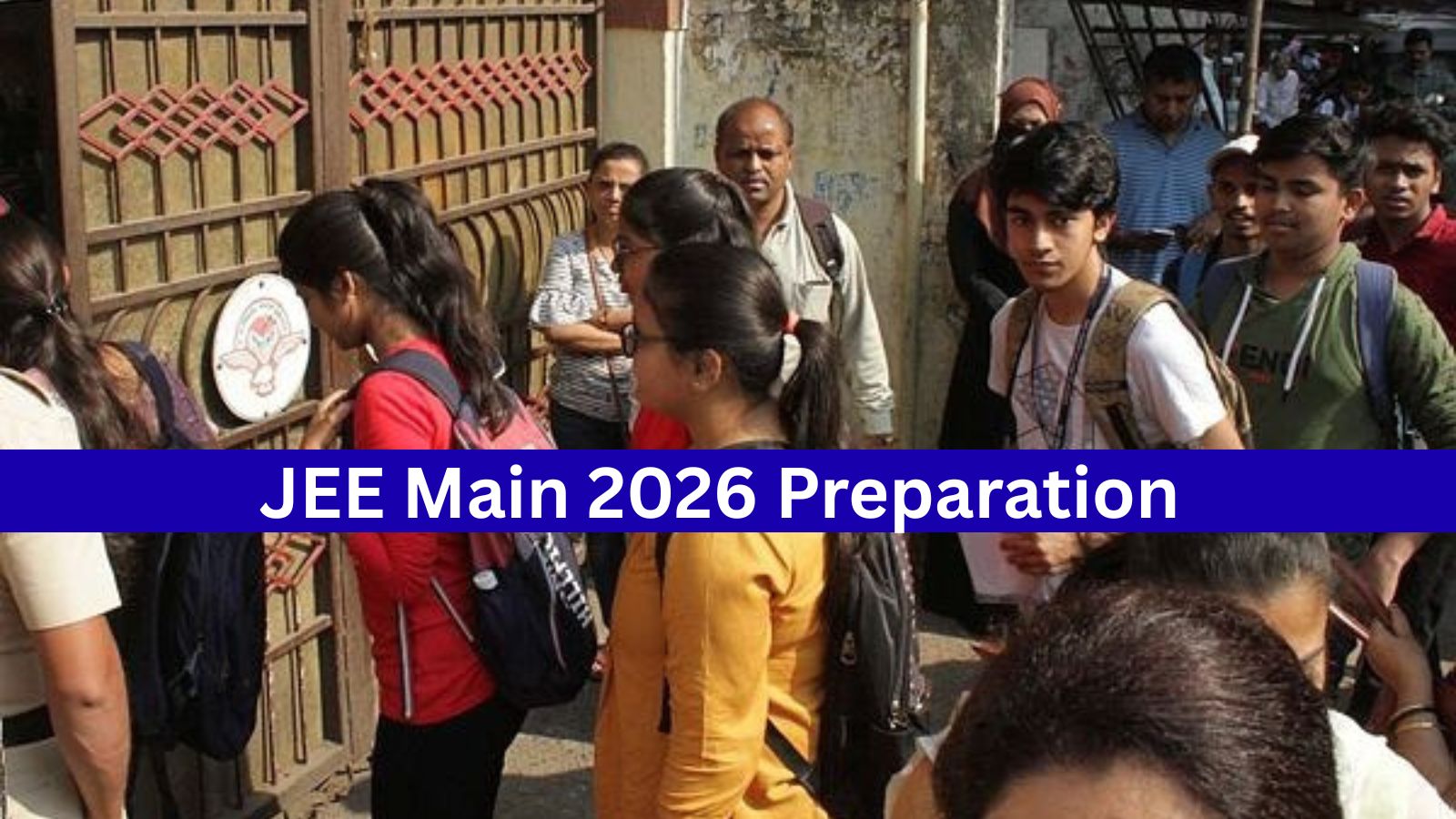© IE Online Media Services Pvt Ltd
Latest Comment
Post Comment
Read Comments
 JEE Main 2026 preparation and board exams (Express Photo by Deepak Joshi/ representative)
JEE Main 2026 preparation and board exams (Express Photo by Deepak Joshi/ representative)— Siddharth Garg
There is a widely believed misconception amongst students and parents, that if a student prepares rigorously for the Joint Entrance Examination Main (JEE Main), they will have to give up their preparation for the board exams. There are many who genuinely think that if they do well in one, they are obviously sacrificing the other. This is completely false. Board exam preparation and JEE Main preparation work together. The perception that the boards suffer because of the JEE Main preparation is one of the student’s most incorrect assumptions.
In exploring both the material, syllabus, and principles, 99 per cent of the syllabus covered in the JEE Main is the same as the boards in Class 11 and Class 12. It does not matter whether it is physics, chemistry, or mathematics; the theoretical concepts are identical in both formats.
Yes, JEE Advanced may demand a deeper and more analytical understanding, but if we focus solely on JEE Main preparation, the only difference is the level of application of those concepts, and not the concepts themselves. JEE Main simply tests your capability on more sophisticated and multi-concept problems in an objective format, while the boards will assess a deeper understanding utilising step-wise communication in a more subjective format.
If a student prepares properly for JEE Main by developing an understanding of concepts rather than simply looking for shortcuts, he or she is preparing for boards as well. Developing strong fundamentals and solving problems on a regular basis leads to conceptual clarity, which is what boards primarily try to assess testing.
A student studying NCERT thoroughly or solving NCERT-appropriate questions during their preparation for JEE Main is not going to have weak preparation in regards to boards. Finally, a student who is not doing well with NCERT is likely also not going to do well with JEE Main. So there isn’t a need to study separate concepts to prepare for the two outcomes. Finally, studying smart and building a solid strategy will help students achieve excellent marks on either exam.
The only primary distinction is the answer writing practice required for board examinations. However, the students are not writing board examinations for the first time; they have already written school and Class 10th board examinations, so they have some practice in framing answers and step marking. This can easily be addressed by carrying out a few subjective mock tests after the January attempt of JEE Main. By looking at the answer structure, improving ‘presentation’, and ensuring clear explanations of concepts, students can significantly score more.
In addition to PCM, students have subjects like English, computer science, physical education, economics, etc. Students suffer not because they are demanding, but rather because they tend to ignore them during the year. If you try to cram them all in the last few days, you will find it difficult and time-consuming. However, these light subjects are not difficult if the topics are revised periodically, even during regular classes. As a result, the weight of these subjects, when combined with the rest of the classes and exams, automatically becomes less when it is approached properly. The stress is alleviated if you consistently do a little work and prepare for the classes, knowing that they don’t have to be pressure items before the boards.
Also Read | JEE Main 2026: How to apply the 80/20 rule to ace Mains?
Mock tests are an important part of both JEE Main and board preparations. Just as students take JEE Main mock tests to familiarise themselves with the format of the exam and increase their accuracy, students should take subjective mock tests for boards in January and February. This provides opportunities for students to learn about time management, what would be considered expected answers, and to improve their writing speed.
Preparing for boards is in no way disconnected from preparing for JEE Main. It is a myth that you have to choose between one and the other. Looking at it this way is absolutely incorrect. If material is thoroughly learned conceptually, periodic practice, proper emphasis on NCERT, and mock tests are given on time, you can actually prepare for both the boards and JEE Main without stress.
Students should stop focusing on the myth altogether, and instead go for conceptual clarity and consistency while learning ‘material’. If you are preparing well for JEE, board results will also automatically take care of themselves, assuming attention is paid to revision and answer writing.
(The author is an IIT Delhi alumnus and physics, HOD at Vidyamandir Classes)